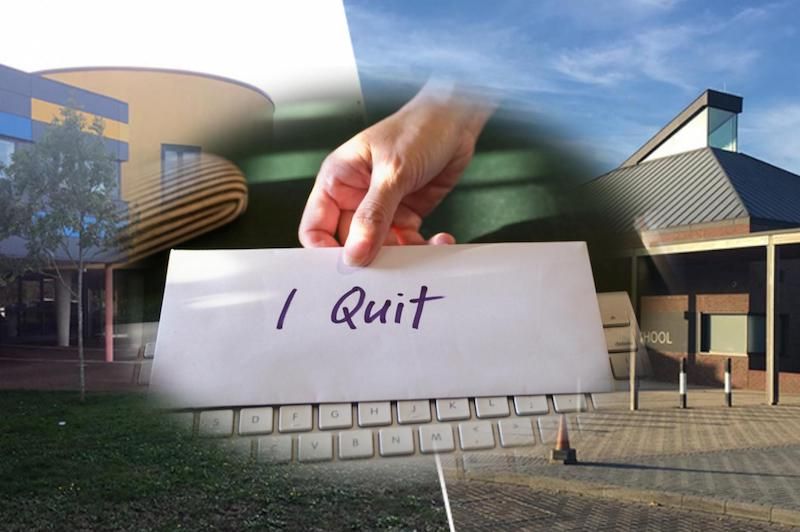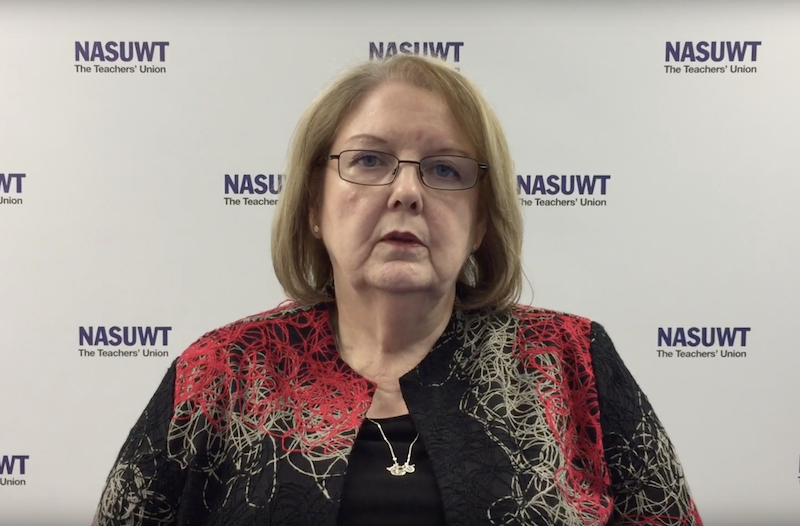


Over two thirds of teachers have seriously considering quitting their jobs, and over half have considered leaving teaching altogether, according to a NASUWT survey.
The survey has found a significant decline in teachers’ morale and job satisfaction, along with "widespread concern about the States’ plans for education".
This came after a number of other unions with staff in education, including non-teaching staff, wrote to the media to outline their concerns with the plans. Education responded to these concerns saying they needed to "strike a balance" and improve the way they communicate with staff. Those other unions did feel the general direction ESC was taking was the right one though.
This latest survey, however, is from the country's largest teaching union, the NASUWT, and unlike the other statements, it showed teachers did have concerns with that general direction.
It had the following key findings:

Pictured: NASUWT's Chris Keates.
Chris Keates, Acting General Secretary of the NASUWT, said: "It is clear that NASUWT members have significant concerns about the school transformation plan and their working conditions in general. The NASUWT has been clear that the proposals should represent the best for Guernsey’s teachers and pupils and must not represent a worsening of the educational environment.
"The NASUWT is pleased that the Committee for Education, Sport and Culture has responded positively to the survey findings, rather than seeking to dispute them. The NASUWT remains concerned, however, that on the issue of the school transformation plans, the Committee is not willing to look again at the footprint of buildings, which is the root cause of many of the NASUWT’s members concerns. Although the Committee has stated that many of the concerns can be effectively managed without detriment to pupils or teachers, the NASUWT remains to be fully convinced of this.
“The NASUWT will engage with the Committee to seek to address the concerns that members have raised, however, the Committee should be in no doubt that the NASUWT will do everything necessary to represent its members’ interests."

Pictured: Deputy Matt Fallaize and Liz Coffey.
Further to ESC's initial response to the concern, they have released another statement as a general update to the transformation of secondary education. It has just held the first of a series of drop in sessions for staff, and Committee members and ESC staff are now going in to the schools to speak about where their plans are at.
Liz Coffey, the Executive Head Teacher of Lisia School, said: "In many ways the States’ approval of the new model and the capital funds has created some certainty after many years of uncertainty. Staff in schools are hungry for more information and my senior colleagues and I are determined to ensure that teaching and support staff are fully involved in the journey of reform which we have just started."

One of the concerns some of the unions had was the lack of outdoor space at the schools. ESC said the size of the sites had been rigorously calculated, and each college would have "two all-weather multi-use games areas with significantly improved surfaces". Outdoor space under hard canopies will also provide more recreational space.
While Deputy Matt Fallaize, President of ESC, has already said more needs to be done to secure support for their reforms, he added: "It is reassuring to hear the unions say there is support for the new non-selective secondary school model. In the past few months, we’ve been very focused on engaging with our political colleagues to secure support not only for redeveloping the two sites for Lisia School but also the new Guernsey Institute for further and higher education, the redevelopment of La Mare de Carteret Primary School, improvements in digital technology in schools and the co-location of education and health & care services on school sites.
"This was an important milestone to reach but there is still a long way to go in finalising and implementing the plans for the new model. For that reason, we need to resume and improve our engagement with staff in schools and we’re thankful to them for taking the time to discuss their views with us.
"After many years of at times unsettling debate, thankfully the States have agreed the essentials of the reforms, and we know the cost envelope for the secondary school extensions, which the States have directed cannot exceed £77.9million. There are very strong reasons for these reforms but we recognise the need to work harder to communicate these reasons. We must also be mindful of having to strike the right balance between providing the best possible educational facilities and delivering value for money for taxpayers.
"The States spent many years debating the right model for secondary schools. Perceptions about the unaffordable size of the buildings saw previous proposals rejected. This has prolonged the inequality of facilities for our students and has left some students learning in school buildings that are wholly inadequate. We are confident we can do more to address some of the issues being raised by teaching staff currently, but we must be mindful of not repeating that history."
Comments
Comments on this story express the views of the commentator only, not Bailiwick Publishing. We are unable to guarantee the accuracy of any of those comments.